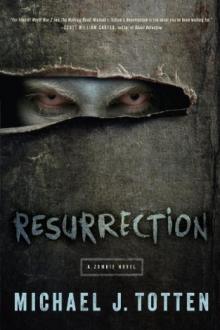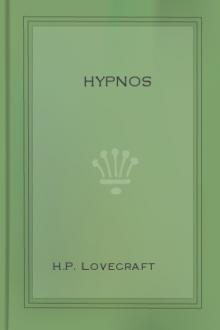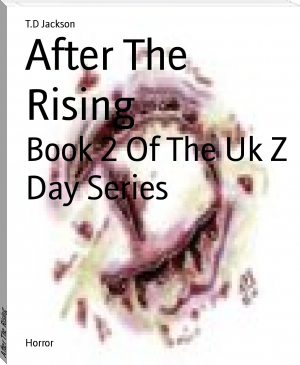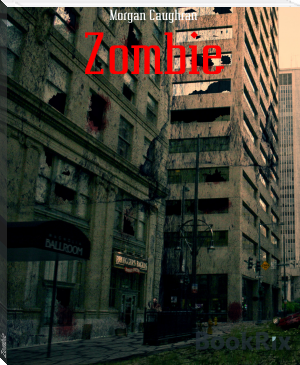Resurrection: A Zombie Novel - - (the best motivational books txt) 📗

- Author: -
- Performer: -
Book online «Resurrection: A Zombie Novel - - (the best motivational books txt) 📗». Author -
Eastsound was a tourist town back in the day when there were still tourists. It was not even a town, technically, just an unincorporated community, but it looked like a town, it functioned like a town, and it was effectively the “capital” of Orcas Island, the largest and prettiest of the San Juans.
Romantic waterfront hotels, rental cottages, restaurants, cafés, and craft breweries were all on or within walking distance of the shore. The water is calm as a lake there even during winter storms because the open ocean is forty miles away, the enormous swells and crashing surf blocked by Canada’s Vancouver Island.
The San Juans are north of Puget Sound across the Strait of Juan de Fuca, which in some places formed the maritime boundary between the United States and Canada back when national borders had meaning. The only part of America northwest of Eastsound was Alaska. The community was as remote a place in the lower forty-eight as a person could get.
Kyle knew all this because he had been there before, first when one of his friends took him to Orcas on his boat and taught him to sail, and again when he brought an old girlfriend on the ferry for a romantic three-day weekend.
Orcas Island is shaped like a narrow-necked horseshoe, and Eastsound is right there in the neck. If you have your own boat, you can get there from the south by sailing ten miles up the inlet between the eastern and western arms of the island, though most tourists took a ferry, which deposited them ten miles south of town in the village of Orcas.
About 5,000 people lived on the island, roughly half of them in Eastsound and the others scattered in Orcas, Deer Harbor, and the little bits of “countryside” in the island’s interior.
The island’s residents were about to find themselves with new neighbors.
Perhaps Kyle and the others would be welcome and maybe they wouldn’t. If not, there was room to spread out. Most of the island was empty and covered with forest. They could vanish into the trees if they had to. If nothing else, they could live on the boat and anchor it off the island’s east coast, where nobody lived and where nobody would bother them.
Kyle loved the journey to Orcas. The route passes through a maze of waterways between forest-covered islands that rise like mountains out of the sea. The area looks and feels primordial when fog hangs in the trees and muffles all sound. Kyle had never seen such beauty anywhere else. The fire and ash of Seattle may as well be on the other side of the world.
They passed some lightly inhabited islands on the way—Center Island and Blakely on the right and Lopez on the left. These weren’t private islands, exactly, but they weren’t for tourism either. Kyle doubted the few souls who lived there would want any refugees from the mainland. Orcas was the obvious choice. It had more people, more houses, more supplies, more hotels, and more unoccupied second homes. It had a critical mass of year-round residents who knew how to farm, knew how to fix things, and—perhaps most important—knew a thing or two about medicine. Surely at least a few of those 5,000 residents went to medical school.
“We’re almost there,” he said as they entered the narrow waterway between the island’s two forested arms. “This is it. This is Orcas. The town of Eastsound is only ten miles north of here.”
“What do we say when we get there?” Frank said.
“We say hello.”
Kyle held his breath in anticipation when Eastsound came into view. He recognized the delightful little beachfront hotel where he’d once stayed with a girlfriend. He’d never forget that weekend, but that was thanks more to the charm of the island than the girl, since she broke up with him shortly after they got back to Portland.
Main Street ran four or five blocks along the waterfront. The town was hardly more than a village, but it was larger than it appeared from the water. Another street—which, if he remembered right, was called Beach Street, but he couldn’t be sure—ran north to south away from the water. It, too, had restaurants and bars on it and trim prewar wooden houses behind. None of the junky fast-food restaurants and big-box stores that marred that piece of crap town off the interstate existed anywhere on the island. Eastsound—all of Orcas, really—was postcard-perfect.
And it was intact.
“Wow,” Frank said.
“Well look at that,” Annie said.
“It looks so … normal,” Parker said.
Hughes stepped onto the deck from below with his rifle.
Eastsound wasn’t on fire. Eastsound wasn’t filled with a screaming horde. But as they slowly approached in the boat, Kyle didn’t see any people. He wasn’t expecting a welcome party, but someone should have seen the boat approach and headed down to the water to see who was coming. They’d been within eyeshot of the town for at least twenty minutes.
“Weird,” Kyle said.
“Mmm-hmm,” Parker said.
That man had an obnoxious tone even when he said nothing. He didn’t want to come here, but had he thought for even one second about how nice it will be to check into that hotel and sleep in a bed? Or better yet, in a house?
“What do we do?” Annie said. “Should we check out that hotel?”
“We need to wait,” Hughes said. “Kyle, drop anchor. We need to know what the hell’s going on in that town.”
“Apparently nothing’s going on,” Kyle said. “I don’t see or hear anybody.”
“Should we call out?” Annie said. “No one has seen us. It’s not like they’d be expecting a boat.”
“They wouldn’t expect a boat here,” Kyle said. “Most people take the ferry and drive in. The dock is ten miles away.”
“All right,” Hughes said. “We yell to get their attention.” Nobody objected. “Hello!” he shouted. His voice didn’t just carry. It thundered. “Hello! Anybody in town?”
Nothing stirred. Nobody emerged from one of the houses. No one parted curtains in any of the hotel rooms.
“Fire a shot in the air,” Parker said. “That’ll get their attention.”
“It looks like there’s nobody home,” Hughes said, “but we have to know for sure.”
“Maybe they’re off gathering food,” Frank said.
“And maybe they’re dead,” Parker said.
They weren’t dead. Kyle was certain of that. The plague hadn’t hit Eastsound. Everything looked fine. There were no abandoned cars on the road, no broken windows, no scorch marks, no dead bodies, no reek of death wafting over the water, not a blade of grass out of place.
Frank ducked, Kyle squinted, and Annie plugged her ears when Hughes fired.
The entire island must have absorbed the shock wave from Hughes’ gunshot, but not a blade of grass so much as twitched.
“Maybe everyone left,” Annie said.
“Apparently,” Kyle said. “But why would they leave? This place is perfect.”
“Maybe they were rescued,” Frank said.
“Rescued from what?” Kyle said. “There’s nothing here.”
“You don’t know that,” Parker said.
“Look around,” Kyle said.
“You. Don’t. Know that.”
Kyle may not have known that for sure, but he knew it well enough. Nothing bad happened here. He didn’t know how and he didn’t know why, but Eastsound was empty.
Annie knew at once that she could get used to this place. She hadn’t even stepped off the boat yet, but this idyllic little village presented itself like a gift from the gods.
You can’t drive to Eastsound, nor can you swim there from the mainland. The infection wasn’t there, and with so few survivors left to spread it, how could it ever get there?
Even so, she couldn’t stay.
The chances that she might find her parents were much better than the odds of finding her sister. How she’d actually get to South Carolina was another matter entirely. When Kyle had said thousands of people lived on the island, she figured at least one or two of them would know how to fly a plane, but everyone seemed to have left. She was less concerned with why there were no people than the fact that there were no people. No people meant no plane ride.
She missed everything about the





Comments (0)